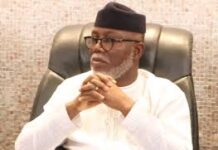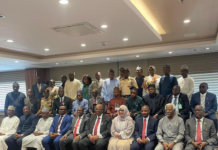Nigeria’s Border Closure Causes Uproar in ECOWAS Parliament
POLITICS DIGEST – There was uproar on the floor of Economic Community of West African States (ECOWAS) parliament, on Thursday, over Nigeria’s border closure policy as Nigeria hinged its decision on failure of Benin Republic to implement agreements.
With Ghana and The Gambia insisting that they were implementing all bilateral agreements and urging Nigeria to re-open the borders, the Federal Government said the borders would remain shut for a while, even if it was responsible for rising inflation within the country.
The verbal exchange followed presentation of Nigeria’s country report by its delegation at the ECOWAS Parliament, led by Deputy Speaker of the House of Representatives, Ahmed Idris Wase at the 2019 Second Ordinary Session of the parliament in Abuja.
Wase told the parliament that prior to the Nigeria’s land border security drills, the Nigerian Government had in 2016 banned importation of rice through land borders.
He said that despite this measure, imported rice continued to flood the Nigerian market at rock bottom prices, thereby rendering locally produced rice unattractive to buyers.
Read Also:
Specifically, he said “most of the smuggled goods are not part of the legal items captured under the ECOWAS Trade Liberalization Scheme, ETLS, but rather imported by third countries, such as rice produced in Thailand and Vietnam, exported to Benin and finds its way to Nigeria through smuggling.”
He said such goods were accompanied by other illicit items such as hard drugs, which were causing so many challenges to Nigeria.
He said: “Nigeria has a lot in common with all the countries that we share borders with; there is no difference between the person living in Jibia in Katsina and the person living along the side of Niger, is it the religion or the language they speak or the culture and tradition?
“The same thing with a person living in border communities of Togo, where we have Yorubas, and in Cotonou, and I want to believe that we are one member nation. My colleagues, what has been doled out to you may not be the correct perspective.
“First we have a protocol and the protocol is very clear — no country in the ECOWAS sub-region is allowed to export into another country what it does not produce, meaning, by our own actions, we want to be self sufficient, we do not what to be dumping grounds, we want to encourage local production.
“We cannot sustain this any longer at this time, a situation where the so-called super powers of the world will produce, have it for a very long period of time, after a while, they use other African countries as conduits to bring these things to our country. This is not acceptable to Nigeria and I believe as good citizens and MPs, we should encourage our people to become productive. The population we have in this country should not just be a number by size, but a number that can be helpful to the nations of Africa and to the world.”
















